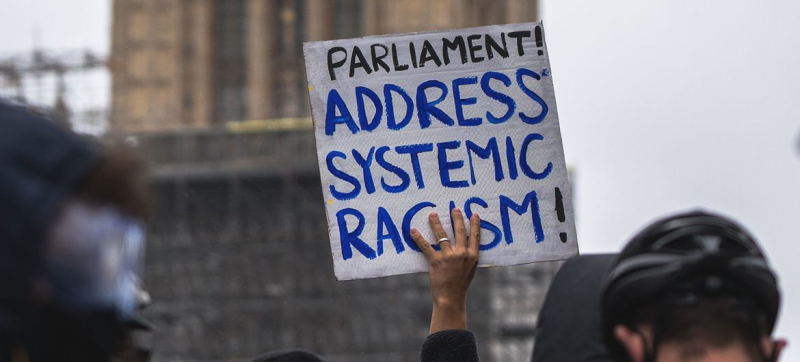- Khagrachhari violence: 3 cases against 1, 000 unknown people |
- Durga Puja ends today thru immersion of idol |
- Bay Deep depression likely to cross Odisha by Thursday night |
- Human Rights Groups Urged to Unite Against Racism |
- UN, Civil Society Urge Action on Rohingya Rights in Myanmar |
Human Rights Groups Urged to Unite Against Racism

Protestors take part in a Black Lives Matter demonstration in central London, UK. (file)
The “colour line” still exists today – clear proof that more must be done to stamp out anti-Black racism, the head of a UN platform promoting inclusion and equality for the global African diaspora said on Wednesday.
Martin Kimani, chairperson of the Permanent Forum on People of African Descent, presented its annual report to the Human Rights Council in Geneva during an interactive dialogue with country representatives.
“Every year, events captured in news headlines and in the lived experiences of people of African descent tragically confirm that even at this stage of the 21st century, the colour line remains in place, creating a hierarchical divide that sustains segregation, violence, societal division, denial of equal opportunity and equity, and continued exploitation and multiple forms of oppression,” he said.
“Human rights movements, including anti-racist movements, need to unite more than ever and act to ensure that the promise of multiple UN resolutions, including the International Convention on the Elimination of All Forms of Racial Discrimination, is realised.”
This past January marked the start of the second International Decade for People of African Descent. The Permanent Forum views this “as a period enabling the reinforcement of global solidarity that advances concrete progress.”
Alongside other stakeholders, it has called for advancing action around three pillars: recognition, justice and development. Measures include greater recognition of systemic racism, the pursuit of reparatory justice and stronger inclusion of people of African descent in all development frameworks.
Mr. Kimani stressed that human rights concerns overlooked during the first Decade must now be addressed. These include environmental and climate justice, the fair application of artificial intelligence (AI), and digital justice.
He said the Forum has been engaging closely on these issues, noting that its annual session in New York last April placed digital justice on the agenda.
“The Forum emphasised that the pursuit of reparatory justice remains urgent in this digital age, as systemic inequities within and among countries risk being replicated and amplified in emerging technologies,” he said.
The Forum expressed concern over the perpetuation of racial biases in AI systems while acknowledging their potential benefits. “AI and digital technologies cannot be disconnected from the broader historical and contemporary injustices that shape them,” he added.
The session also examined how women and girls of African descent are affected by intersecting forms of discrimination.
“The dehumanisation of African women from the onset of enslavement set the tone for the continued devaluation and discrimination they face to this day,” Mr. Kimani said. “The goals of development cannot be achieved without reparatory measures that explicitly address their realities.”
The past year also saw continued deliberation on reparatory justice, described as “a critical and urgent priority.” It encompasses restitution, compensation, and satisfaction, including acknowledgement of past wrongs and public apology.
Mr. Kimani stressed that “the current crisis in Haiti is not an isolated event but is deeply rooted in the legacies of colonisation and enslavement.”
He recalled that Haiti, the first country to free itself from slavery through revolution, gained independence in 1804 but was forced to pay France 150 million francs in compensation for lost property.
The Permanent Forum has published a position paper with concrete recommendations, including a “reparatory justice perspective” and acknowledgement of Haiti’s so-called “independence debt.”
He urged the Human Rights Council to “consider the crisis in Haiti in that light.”

